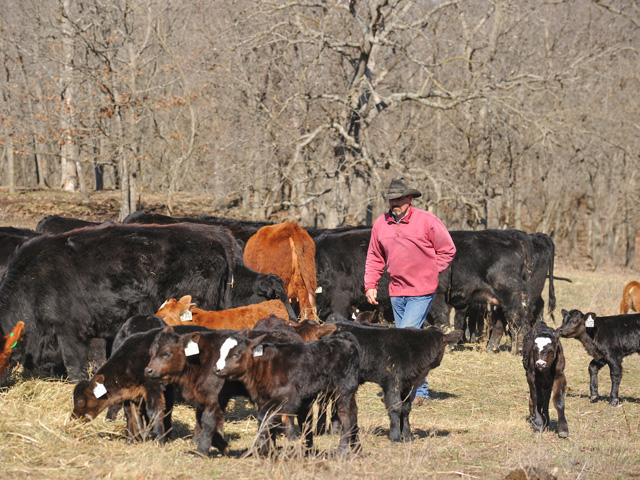Farm Animals and COVID
New Study Says Livestock Producers Are Safe From Catching COVID-19 From Farm Animals
BIRMINGHAM, Ala. (DTN) -- Early in the pandemic crisis, researchers and scientists at the Agricultural Research Service (ARS) started studying whether COVID-19 could infect farm animals. And if livestock could be infected, could they transmit the virus to people through direct contact, or even through any agricultural product coming from these animals?
A newly released report on that research, which goes back to February 2020, reveals the answer is "no."
Cyril Gay, ARS senior national program leader for animal production and protection, said the research looked at susceptibility to the SARS-CoV-2 virus specifically. Gay said studies "clearly provided science-based evidence that eggs and live poultry, cattle, swine and arthropods (mosquitoes, ticks, flies) were not able to replicate the virus and become a source of infection for people."
The veterinarian and microbiologist added that of all the animals considered in the study, only white-tailed deer, which are farmed in some areas, were susceptible to the virus.
"Interestingly, deer did not get sick, but they quickly spread the virus to other deer," he said. The research was specific to white-tailed deer, which has a virus cell receptor that closely aligns with the sequence of the human receptor.
P[L1] D[0x0] M[300x250] OOP[F] ADUNIT[] T[]
This is not the first time the ARS has put its researchers on the front lines in a health emergency. The H1N1 pandemic and the pathogenic avian influenza virus outbreak have all been studied in recent years. Gay stressed that USDA is a key contributor to the nation's National Biodefense Strategy and that it works closely with public health agencies to effectively respond and mitigate emerging zoonotic pathogens that pose a threat to the health of people and farm animals.
"A critical aspect of our job is to respond rapidly and implement emergency research on a disease outbreak and quickly test or develop veterinary medical countermeasures to prevent and control the spread of the disease," Gay said. "By mitigating the impact of disease, we lower the threat it could cause to U.S. agriculture, our economy and our citizens."
Gay, who received the USDA Presidential Rank Award in 2017, holds a DVM degree from Alabama's Auburn University and a Ph.D. in microbiology from George Washington University.
COMPANION ANIMALS AND COVID
Given this new ARS research, livestock producers can rest easier knowing their farm stock cannot transmit the virus. For many, however, there are still questions as to whether companion animals like dogs and cats can spread the SARS-CoV-2 virus.
This recent ARS study did not report on companion animals, but earlier reports from the American Veterinary Medical Association (AVMA) addressed this evolving issue.
Based on the most recent AVMA information, dogs, cats, ferrets and Syrian hamsters have been found to have the SARS-Cov-2 virus. The AVMA states, "These species are not easily infected under natural conditions, and there is no evidence that infected cats or dogs spread the virus to other animals or to people."
Symptoms pet owners may see in an infected pet include coughing, difficulty breathing, lethargy, sneezing, nasal and eye discharge, vomiting and diarrhea. Animals showing these symptoms should be checked by a veterinarian, who can determine if a COVID test should be administered, and thereafter recommend an appropriate course of treatment.
The AVMA issued guidelines for treatment of companion animals that receive a presumptive positive test for SARS-CoV-2, with confirmation of that test by a USDA National Veterinary Services Laboratory. The guidelines note that, in most cases, the animal's symptoms will be mild and resolve with supportive care. The AVMA recommends care be at home if possible but that the infected animal be separated from other people and pets (just as a person would quarantine).
"It is especially important that the pet does not share immediate space with people identified by the CDC as being at increased risk from COVID-19," says the guidelines. That would include anyone over the age of 65, with chronic lung or heart disease, with diabetes or who is immune-compromised.
Interaction with the pet should be limited, while still providing appropriate care. Wear a cloth face covering and gloves when interacting with the pet through the quarantine period. Be especially thorough in washing hands before and after caring for the pet, handling their food, water, toys, bedding, litter boxes, etc.
Victoria Myers can be reached at vicki.myers@dtn.com
(c) Copyright 2021 DTN, LLC. All rights reserved.






